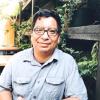History of Science, Technology and Medicine in Latin America
The Working Group will meet monthly during the 2020-2021 academic year to advance the conversation of researchers in this expanding field. The multilocality of the Group’s core members (United States, Chile, and Spain), and their respective temporal (16th-20th centuries) and geographic areas of expertise (Mexico, Argentina, Colombia, Peru, Chile, and the Caribbean), will contribute to the scholarly analysis of the variegated Latin American experiences. The Group will be coordinated through three central nodes. Diana Montaño will organize the node in the United States; David Pretel will direct the Spanish node; and José Ragas will organize the Chilean node.
Please set your timezone at https://www.chstm.org/user
Respectful Behavior Policy
Participants at Consortium activities will treat each other with respect and consideration to create a collegial, inclusive, and professional environment that is free from any form of discrimination, harassment, or retaliation.
Participants will avoid any inappropriate actions or statements based on individual characteristics such as age, race, religion, ethnicity, sexual orientation, gender identity, gender expression, marital status, nationality, political affiliation, ability status, educational background, or any other characteristic protected by law. Disruptive or harassing behavior of any kind will not be tolerated. Harassment includes but is not limited to inappropriate or intimidating behavior and language, unwelcome jokes or comments, unwanted touching or attention, offensive images, photography without permission, and stalking.
Participants may send reports or concerns about violations of this policy to conduct@chstm.org.
Upcoming Meetings
-
Tuesday, November 26, 2024 12:00 pm to 1:30 pm EST
TBA
-
Tuesday, December 3, 2024 12:00 pm to 1:30 pm EST
TBA
-
Tuesday, January 7, 2025 12:00 pm to 1:30 pm EST
TBA
-
Tuesday, February 4, 2025 12:00 pm to 1:30 pm EST
TBA
-
Tuesday, March 4, 2025 12:00 pm to 1:30 pm EST
TBA
-
Tuesday, April 1, 2025 12:00 pm to 1:30 pm EDT
TBA
-
Tuesday, May 6, 2025 12:00 pm to 1:30 pm EDT
TBA
Past Meetings
-
November 5, 2024
TBA
-
June 20, 2024
Plant Hunters, Hybrid Flowers and Artificial Atmospheres: Nineteenth Century Green Spaces in England and the Andes
Diego Molina (Royal Holloway | University of London)
-
May 2, 2024
Machines and Urbanisation in the Amazon:
Lorena Córdoba (CONICET/UCA and Ca' Foscari University Venice): "Ships, Trains and Telegraphs: Machines in the Amazon Rubber Industry".
Adrián Lerner (Cambridge University and Freie Universität Berlin): "Meanderings: Making Urban Space in Amazonia".
-
April 18, 2024
Black and Indigenous Mining Technologies and Knowledges in the Americas
Presenters:
Jenny Bulstrode (UCL)
Allison Bigelow (University of Virginia)
-
March 7, 2024
Pests and Pest Control in Latin America and Beyond.
Presenters:
Tomas Bartoletti (ETHZ): "Insect Pests and Economic Entomology in Plantations".
Thomas Rath (UCL): "Pests and the Nature of Atomic Agriculture".
-
February 1, 2024
Household Appliances and Consumers in Cold War Southern Cone.
Javiera Letelier (UC Irvine)
Pablo Pryluka (Princeton University)
This presentation will explore the expanded access to domestic goods that took place in South America in the decades following the end of World War II. Economic planning and political development gained traction globally over those years as tools to support modernization and welfarism. This happened in South America with a particular flavor: developmentalism launched an industrialization crusade to leave behind the region’s past as an exporter of foodstuff and raw materials. Thanks to local production and a rise in the standard of living, more people gained access to a broader range of domestic goods in the postwar years, which peaked over the 1960s. In their joint presentation, Javiera Letelier and Pablo Pryluka will explore the social and cultural changes this new access to durable goods brought about. By analyzing sales, advertisements, and public policy, they will explore how consumers experienced access to a variety of durable goods that would transform their everyday lives.
-
January 8, 2024
Eric Carter (Macalester College) on his new book "In Pursuit of Health Equity. A History of Latin American Social Medicine".
https://uncpress.org/book/9781469674452/in-pursuit-of-health-equity/
-
December 7, 2023 to January 4, 2024
Join us on December 7th for a conversation with Christopher Heaney about his new book, Empires of the Dead
-
November 2, 2023
Federico Rayez (CONICET - Universidad Nacional de Quilmes) | "Más allá del consultorio. Los sanitaristas argentinos como agentes de modernización (1960-1970)" (Buenos Aires: Biblos, 2023).
Este libro analiza la experiencia de los y las sanitaristas en la Escuela de Salud Pública de la Universidad de Buenos Aires (ESPUBA) desde su creación en 1958 hasta 1976. Esta institución, y los expertos que se formaron allí, sostuvieron una doble vinculación con agencias estatales de salud y con organismos internacionales especializados.
-
September 7, 2023
TBA
Group Conveners
-

Diana J. Montaño
Diana J. Montaño is Assistant Professor at Washington University in St. Louis. Her teaching and research interests broadly include the construction of modern Latin American societies with a focus on technology and its relationship to nationalism, everyday life, and domesticity. Her first book Electrifying Mexico looks at how "electrifying agents" (businessmen, salespersons, inventors, doctors, housewives, maids, and domestic advisors) used electricity, both symbolically and physically, in the construction of a modern nation. Taking a user-based perspective, Dr. Montaño reconstructs how electricity was lived, consumed, rejected, and shaped in everyday life (https://utpress.utexas.edu/books/montano-electrifying-mexico). For her articles on the intersection of humor and class in streetcar accidents see History of Technology (https://tinyurl.com/5cr7r6hu -) and Technology's Stories (https://tinyurl.com/p4ucsmns). For her HAHR article on power theft in turn-of-the-century Mexico see https://tinyurl.com/9chy8s8v
-

David Pretel
David Pretel is professor of history and economic institutions at Autonomous University of Madrid. His research focuses on the history of export commodities, intellectual property rights and the entangled histories of technology, capitalism and the environment in the tropical world. His first book, "Institutionalising Patents in Nineteenth-Century Spain" (Palgrave Macmillan), examined the development of the Spanish patent system (1826–1902), providing a fundamental reassessment of its evolution in an international and imperial context. He is co-editor of the volumes "The Caribbean and the Atlantic World Economy: Circuits of Trade, Money and Knowledge, 1650-1914" and "Technology and Globalisation: Networks of Experts in World History". His recent publications include articles in the journals History of Science, Technology & Culture, Global Environment, History of Technology, Historia Mexicana, Business History, Artefact, Latin America in Economic History and Ayer.
His works, CV, and other details can be found on his website
-

José Ragas
José Ragas is an Assistant Professor at Instituto de Historia in Pontificia Universidad Católica de Chile, where he teaches courses related to STS and global history. Dr. Ragas holds a Ph.D. from the University of California, Davis. Previously to his appointment in Chile, he was a Mellon Postdoctoral Fellow in the Department of Science & Technology Studies at Cornell University and Lecturer in the Program in the History of Science and History of Medicine at Yale. His current book manuscript examines the emergence of a techno-social system engineered to capture and store personal data in Peru between 1820 and 1930. He is also interested in how, over the past two centuries, ordinary people have manipulated identification devices and challenged the restricted categories of personal identity imposed by policymakers in the Global South.